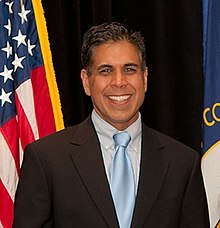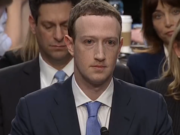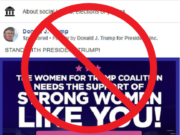Hon. Amul Thapar
United States Court of Appeals for the Sixth Circuit (2017-Present); United States District Court for the Eastern District of Kentucky (2008-2017)
Despite a decade on the federal bench, Judge Thapar has rarely been called to rule upon First Amendment claims, particularly in the context of traditional political speech. While First Amendment claims have generally fared well with Judge Thapar, in his most prominent case involving core speech on political issues, Winter v. Wolnitzek, he showed a somewhat surprising willingness to accept proffered state interests at face value.
Winter v. Wolnitzek, 183 F.Supp.3d 673 (2016)
In this case, Judge Thapar was asked to rule on challenges to several Kentucky statutory provisions limiting speech by judicial candidates. Following precedent, Judge Thapar subjected the statutes to “strict scrutiny,” with the result hinging on whether the state had a compelling interest in addressing the problem, and a “narrowly tailored” solution.
Following Sixth Circuit precedent (Carey v. Wolnitzek, 614 F.3d 189 (2010)), Judge Thapar held that the state had a compelling interest in “diminishing the reliance on political parties in judicial selection.” Continuing, Judge Thapar wrote:
If the only thing the Canon forbid was a candidate saying that he is a party’s official nominee, then it would likely be constitutional. After all, Kentucky has a compelling interest in promoting non-partisan elections. And a candidate would of course frustrate that purpose if he claimed to be a party’s official nominee. Thus, even under strict scrutiny, the Canon would likely survive if it forbid a candidate to say that he is a party’s official nominee—and forbid nothing more.
Unfortunately for the defendants, the Kentucky Supreme Court has interpreted the Canon more broadly than that. … A candidate violates the Canon, the Court held, when he says that he is “the” Republican candidate, that he is “the Conservative Republican” candidate, that his opponent is “the” Democratic candidate, or that his opponent is “the Liberal Democrat” candidate. … A candidate apparently does not violate the canon, however, when he says that he is “the only” Republican or that his opponent is “the only” Democrat. … After discussing these specific factual settings, the Kentucky Supreme Court concluded that the Canon forbids candidates to “portray themselves, either directly or by implication, as the official nominee of a political party.” [Citations omitted].
Judge Thapar held that the phrase “or by implication” made the statute unconstitutionally vague. Although Judge Thapar’s ruling seems clearly correct in this case – and we appreciate his concern, too often overlooked by judges in campaign speech cases, in avoiding “discriminatory enforcement” – we were a bit troubled by aspects of the opinion. We are not sure, for example, why the State’s interest in non-partisan elections is “compelling” at all, and if it is, why it overrides the candidate’s interest in speaking. And since Judge Thapar noted that a candidate could say that he is, for example, “a Republican” (or “an ardent Republican”) we are not sure how the appearance of bias is increased by claiming to be “the nominee” of a party. The state’s interest would seem to end with providing non-partisan ballots – it is not clear why the candidate should not truthfully say that he is the party’s nominee. It should be noted, however, that the Sixth Circuit upheld Judge Thapar’s analysis on both points in Winters v Wolnitzek, 834 F.3d 681 (2016).
Similarly, Judge Thapar upheld a provision prohibiting a judicial candidate from serving as a “party leader,” writing, “It would be plainly legitimate to prevent a judge from serving as a “true” leader of a political party.”
Plainly? Would that truly be that much different than serving as, for example, a church elder? And even if so, wouldn’t traditional, case by case recusal be a more narrowly-tailored solution? Again, however, the Sixth Circuit reached the same conclusion on largely identical reasoning.
On a third point, Judge Thapar ruled constitutional a provision prohibiting false statements by a judicial candidate, despite what some would consider contrary rulings in United States v. Alvarez, 132 S.Ct. 2537 (2012) and Susan B. Anthony List v. Driehaus, 814 F.3d 466 (6th Cir. 2016). Judge Thapar seemed to assume that the difference was that “Citizens assume that politicians will lie. … But judges are different.” But Alvarez and Susan B. Anthony List reached the conclusions they did not because politicians are presumed to lie and judges are not, but because such laws were both over and under-inclusive, and because of the problems inherent in state enforcement of “truth” in particular circumstances. Again, however, it must be noted that, on appeal, the Sixth Circuit agreed with Judge Thapar.
In the remainder of the opinion Judge Thapar ruled against the state on First Amendment grounds on provisions of the law prohibiting judicial candidates’ “misleading statements,” making general commitments (such as to uphold precedent), and making speeches to political organizations. Judge Thapar also would have held unconstitutional a provision prohibiting judicial candidates from contributing to other candidates – and on this point, the Sixth Circuit took a more restrictive view of speech and reversed.
In short, although Judge Thapar reached a pro-speech decision on several provisions of the Kentucky law, on notable issues he did not. Where he did not, his opinions either followed clear precedent in the Circuit, or were later validated by the Sixth Circuit.
International Dairy Foods Ass’n v. Boggs, 622 F.3d 628 (Sixth Cir. 2010)
Sitting on the Sixth Circuit by designation, then-District Judge Thapar joined a unanimous panel opinion finding that the State could not compel dairy processors claiming to sell hormone-free milk to include a statement that “The FDA has determined that no significant difference has been shown between milk derived from [hormone]-supplemented and non-[hormone]-supplemented cows.”
Richland Bookmart, Inc. v. Knox County, 555 F.3d 512 (Sixth Cir. 2009)
Again sitting on the Court of Appeals by designation, then-District Judge Thapar joined a unanimous panel opinion finding that state regulation of “sexually-oriented businesses” was a constitutional, content-neutral, time, place, and manner regulation, that the statute’s definitions were sufficiently narrowly-tailored under the First Amendment, and that the ordinance did not unreasonably limit the opportunities for communication.
Click v. Thompson, 898 F.Supp.2d 927 (E.D. Ky. 2012)
In this case, Judge Thapar found that plaintiff, a civil servant, stated a First Amendment claim based on a public official’s refusal to rehire him based on his political affiliations unrelated to the job. Noting that the First Amendment is ‘not a tenure provision,’ but a guarantee that the government will not ‘press state employees and applicants to conform their beliefs and associations to some state-selected orthodoxy,’ [citations omitted] Judge Thapar denied defendant’s motion to dismiss.
In a later opinion in the same case, Click v. Thompson, 926 F.Supp.2d 972 (2013), Judge Thapar allowed plaintiff to amend complaint to avoid dismissal on statute of limitations grounds. With Estep v. City of Somerset (see below), it is clear that Judge Thapar is not quick to dismiss First Amendment claims on the basis of alleged procedural or pleading shortcomings.
Estep v. City of Somerset, 2010 WL 5391909 (2010)
In a case similar to Click, Judge Thapar found that a plaintiff had met the requirements to plead a First Amendment claim that he was denied promotions in his job with the city police department due to his off-duty speech.
The portrait of Judge Thapar that emerges from these cases is not that of a First Amendment warrior, which may surprise some given his reported strong support from Senator Mitch McConnell, the longtime bête noire of the campaign finance “reform” community. Judge Thapar’s opinions, on both the District Court and Court of Appeals, have generally been careful and well within the mainstream of judicial doctrine on First Amendment issues. He appears reticent to dismiss First Amendment claims on procedural grounds, but also unwilling to stake out bold positions protecting First Amendment rights even in the absence of controlling authority. However, his opinions have, nonetheless, been broadly supportive of First Amendment rights, if perhaps quick to accept the legitimacy of various asserted state interests in regulation.














